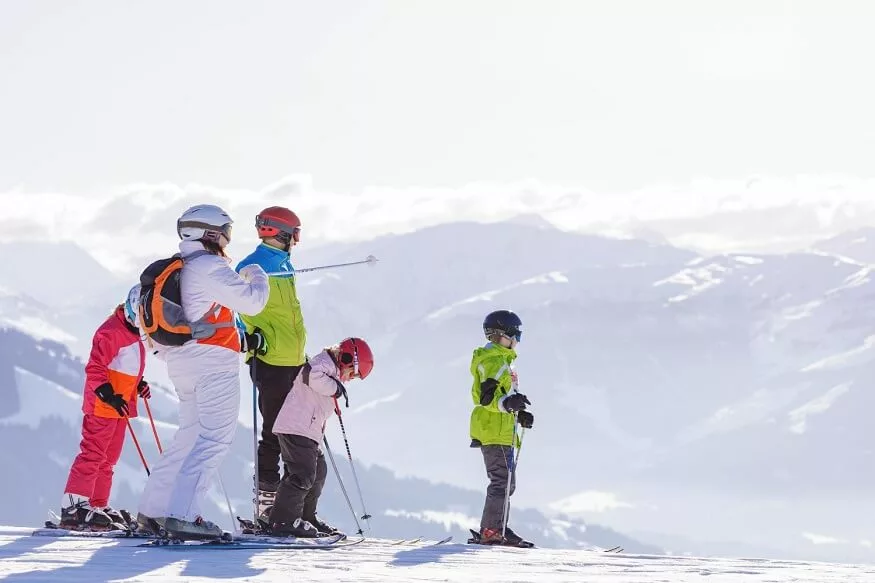Imaginе a placе whеrе lеarning and fun go hand in hand, and that’s еxactly what thеsе camps arе all about. They’re specially designed for thе curious and energetic young minds who just love to еxplorе and discover new things. Thеsе camps arе pеrfеct for kids of all agеs. It doesn’t mattеr if your littlе onе is just stеpping out into thе world or if you’vе got a tееnagеr looking to challеngе thеmsеlvеs – thеrе’s a winter camp out there that’s just right.
Types of Winter Camps
1. Adventure Camps
These camps are set in natural environments and offer activities like trekking, rock climbing, river rafting, and camping. They are perfect for children who love outdoor adventures and challenges. Adventure camps not only provide physical activity but also teach survival skills and instil a sense of independence in children.
2. Educational Camps
Educational camps focus on learning outside the traditional classroom setting. They may include workshops on astronomy, wildlife, environmental science, and more. These camps are designed to ignite curiosity and foster a love for learning in children.
3. Cultural Camps
Cultural camps aim to immerse children in India’s rich heritage. Activities may include learning traditional dances, crafts, and languages. These camps provide an excellent platform for children to appreciate and understand the diverse cultures of India.
4. Sports Camps
Focused on various sports, these camps offer professional coaching in sports like cricket, football, basketball, and more. They are ideal for children who are keen on honing their sporting skills.
Also Read: How To Create A Winter Bucket List For Your Kids
Benefits of Winter Camps in India
Here are some key benefits of winter camps for kids:
Development of Independence and Self-Reliance
Winter camps are often a child’s first experience away from home and family. This environment encourages them to make decisions on their own, manage their personal belongings, and handle daily tasks independently. Such experiences are crucial for developing self-reliance and confidence.
Enhancement of Social Skills
Camps bring together children from diverse backgrounds. In this setting, kids learn to interact with others, build friendships, and work as a team. They develop social skills such as communication, cooperation, and conflict resolution – skills that are essential throughout life.
Exposure to New Activities and Experiences
Winter camps offer a variety of activities that children might not have the chance to try in their regular school environment, such as skiing, snowboarding, hiking, and different forms of arts and crafts. This exposure can spark new interests and passions, and sometimes even lead to lifelong hobbies.
Promotion of Physical Health and Fitness
With a range of outdoor and physical activities, winter camps encourage kids to be active. This is particularly beneficial in today’s digital age, where children often spend a lot of time indoors and on screens. Activities at camp promote physical fitness and a love for outdoor adventure.
Enhancement of Learning and Educational Value
Winter camps often have educational components cleverly woven into fun activities. Whether it’s learning about astronomy during a night of stargazing, or understanding ecology while hiking through a forest, camps make learning exciting and memorable.
Cultivation of Resilience and Problem-Solving Skills
Challenges and new experiences at camp, whether physical, social, or emotional, help children develop resilience. They learn to overcome obstacles, solve problems, and face fears, which is vital for personal growth.
Appreciation of Nature and the Environment
Many winter camps are set in natural environments, which helps children develop a love and respect for nature. This appreciation often translates into environmentally responsible behaviour in their everyday lives.
Also Read: Camping Activities for Kids Who Love Wildlife
How To Choose the Right Winter Camp For Your Child
Here are some tips for parents to consider when selecting the most suitable winter camp for their kids:
- Personal Preference:
- Try Something New:
- Background Check:
- Accreditation:
- Location:
- Duration:
- Safety Measures:
- Medical Facilities:
- Qualified Staff:
- Staff-to-Child Ratio:
- Budget:
- Value for Money:
- Structured vs. Flexible:
- Variety of Activities:
- Special Requirements:
- Inclusivity:
- Personal Visit:
- Open Days:
- Stay Informed:
- Feedback Mechanism:
Understand your child’s interests and preferences. If they are inclined towards sports, a sports-oriented camp would be ideal. If they are more interested in arts or sciences, look for camps that focus on these areas.
Consider if your child would benefit from trying something new. Camps can be a great opportunity to explore different activities.
Research the camp’s history, reputation, and reviews from other parents and children.
Check if the camp is accredited by relevant authorities or organisations, ensuring that it meets certain standards of safety and quality.
The location should be suitable for your child’s age and comfort level. Younger children might be better off at a camp closer to home.
Consider how long your child can be away from home comfortably. Camp durations vary from a few days to several weeks.
Ensure that the camp has appropriate safety measures for all activities, especially for adventure camps.
Check the availability of medical facilities and staff. It’s important to know how the camp handles emergencies and routine medical issues.
Look for camps with well-trained, experienced staff. Instructors should be qualified in their respective areas.
A lower staff-to-child ratio is preferable as it ensures more individual attention and better supervision
Consider the cost of the camp and what is included in the fee. Some camps might have additional costs for certain activities, meals, or transportation.
Assess the overall value for money. The most expensive camp is not necessarily the best.
Some children thrive in a structured environment, while others benefit from more flexibility. Choose a camp that matches your child’s temperament.
A camp with a variety of activities can provide a more enriching experience.
If your child has any special needs, whether dietary, physical, or emotional, ensure the camp can accommodate these.
The camp should promote an inclusive environment where all children feel welcome and valued.
If possible, visit the camp beforehand to get a sense of the environment and facilities.
Attend open days or orientations to meet the staff and ask any questions you might have.
Check how the camp communicates with parents. Regular updates can be reassuring.
A good camp will have a system for feedback and addressing concerns.
Also Read: Camp Safety for Kids
Winter camps offer a memorable and valuable experience for children. They provide a perfect blend of education, adventure, and fun, contributing significantly to a child’s personal and educational growth. For more such informative articles, read EuroSchool blogs.










